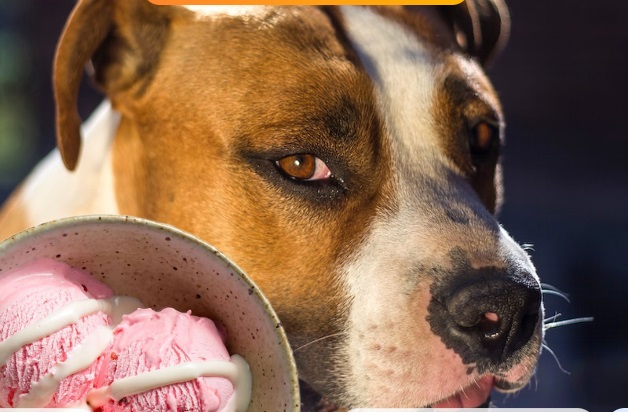We all know how much our furry friends love to indulge in a tasty snack every now and then. But as responsible pet owners, it’s important to be mindful of what we’re feeding our pups to make sure it’s both safe and healthy for them.
One snack that many of us might be curious about is marshmallows. Can our dogs eat marshmallows, or is it best to steer clear? The answer is a bit complicated, so in this blog post, we’ll take a closer look at the potential risks of feeding marshmallows to our pups, and explore some healthier and safer alternatives that they’ll still love.
So if you’re a dog parent who wants to keep their furry friend happy and healthy, keep reading to find out more about the relationship between dogs and marshmallows!
Composition of Marshmallows:
Marshmallows are a sweet treat made from a few basic ingredients, including sugar, corn syrup, gelatin, and water. Some marshmallows might also contain added flavorings, colorings, or preservatives to give them a unique taste or appearance.
While marshmallows might be a favorite snack for humans, it’s important to remember that dogs have different dietary needs and limitations.
Are Marshmallows Safe for Dogs to Eat?
Although marshmallows are not poisonous to dogs, they’re not the best treat option for them. You see, marshmallows contain high amounts of sugar and carbohydrates, which can lead to weight gain, dental issues, and other health concerns for our furry friends.
Additionally, some marshmallows may contain xylitol, which is toxic to dogs.

Potential Risks of Feeding Marshmallows to Dogs:
Feeding your dogs snacks without doing primal research is like poisoning a person and expect him or her not to die or sustain health issues.
As dog owners, it’s crucial to prioritize our pets’ health and well-being by being mindful of the foods and treats we offer them. While it might be tempting to share our favorite snacks with our furry friends, it’s important to do proper research first to ensure that those snacks won’t harm them in the long run.
So this are some of the potential risks of feeding marshmallows to dogs:
Choking Hazard: Marshmallows have a sticky texture that can make them difficult for dogs to swallow, and may even cause choking if not chewed properly. If a large piece of marshmallow gets stuck in your dog’s throat, it can lead to a blockage in the digestive tract, which can be life-threatening if not treated immediately.
Gastrointestinal Upset: The high sugar content in marshmallows can cause gastrointestinal distress in dogs, leading to vomiting and diarrhea. This can be especially dangerous for dogs who have underlying health conditions, such as diabetes or inflammatory bowel disease.
Obesity: Marshmallows are high in calories and sugar, and feeding them to your dog regularly can increase their risk of developing obesity. This is because obesity is often caused by a combination of overeating and lack of exercise, both of which can result from consuming too many high-calorie treats like marshmallows.
Dental Problems: The sticky texture of marshmallows can also cause dental problems in dogs, such as tooth decay and gum disease. This is because the sugar in marshmallows can stick to your dog’s teeth, creating an ideal environment for bacteria to grow and cause dental issues.
So before offering your pup a marshmallow or any other treat, make sure to consider the potential risks and explore healthier alternatives that will keep your furry friend happy and healthy.
Moderation and Alternatives:
If you still want to give your dog a marshmallow treat, it’s best to do so in moderation and avoid flavored or sugar-free varieties. These types of marshmallows may contain artificial sweeteners like xylitol, which can be toxic to dogs.
Instead, you can consider offering your dog healthier treat options, such as fresh fruits, vegetables, or lean meats. These alternatives can provide your pup with important nutrients and vitamins while satisfying their cravings for something sweet or savory.
Ultimately, the key to keeping your dog healthy and happy is to provide them with a well-balanced diet that meets their nutritional needs. While the occasional treat like a plain marshmallow can be a fun way to reward your pup, it’s essential to do so responsibly and in moderation.
What Foods are Toxic to Dogs?
Aside from marshmallows, several other human foods are toxic to dogs. These include chocolate, grapes, raisins, onions, garlic, and avocados. It’s crucial to keep these foods out of your dog’s reach to prevent potential health issues.
The Dangers of Xylitol for Dogs:
Xylitol is a sugar substitute found in many sugar-free products, including some marshmallows. Xylitol is toxic to dogs and can lead to hypoglycemia, seizures, and liver failure. If you suspect that your dog has ingested xylitol, seek veterinary care immediately.
What is xylitol? Xylitol is an artificial sweetener that is commonly found in sugar-free gum, candies, and baked goods. While it’s safe for humans, it can be extremely dangerous for dogs if they consume it.
When dogs eat xylitol, it can cause their bodies to release insulin quickly, which leads to a drop in their blood sugar levels (known as hypoglycemia). This can result in a range of symptoms, including vomiting, diarrhea, loss of coordination, seizures, and in severe cases, liver failure.
It’s essential for dog owners to be aware of products that contain xylitol and keep them away from their furry friends. Even a small amount of xylitol can be toxic to dogs, so it’s important to read product labels carefully and avoid giving your dog any foods or treats that contain this ingredient.
If you suspect that your dog has ingested something containing xylitol, it’s crucial to seek veterinary care immediately. Early treatment can be critical in preventing severe and potentially life-threatening symptoms.
In conclusion, xylitol is a common ingredient in many sugar-free products and can be extremely dangerous for dogs.
As a responsible pet owner, it’s important to keep any products containing xylitol out of reach of your furry friend and seek veterinary care immediately if you suspect they have ingested something containing this ingredient.
Can Dogs Eat Sugar-Free Marshmallows?
Sugar-free marshmallows often contain xylitol, which is toxic to dogs. It’s best to avoid giving your dog sugar-free marshmallows and opt for healthier treats.
Do Regular Marshmallows Have Xylitol?
Regular marshmallows do not typically contain xylitol. However, it’s essential to read the ingredient label before giving your dog any marshmallows.
Conclusion: Can Dogs Eat Marshmallows and Other Human Foods Safely?
While marshmallows are not toxic to dogs, they are not the best choice for a treat. The high sugar content and potential risks make it essential to limit or avoid marshmallows altogether. Instead, opt for healthier alternatives that are safe and nutritious for your furry friend.

Leave a Reply